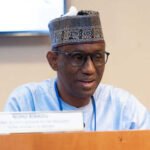A major accomplishment of COP27 was the historic decision to create a fund for damage and loss response, but the severe impact of climate change on African countries lingers.
Development Diaries reports that at the ongoing COP28, about five countries have pledged U.S.$288 million to the loss and damage fund, which has just been operationalised.
It is understood that the United Arab Emirates (UAE), which is hosting the COP28, pledged $100 million as soon as the fund opened on Thursday.
Germany came in second with $100 million. The UK committed £20 million for alternative loss and damage funding arrangements and $40 million to the fund, while the United States and Japan each made a pledge of 17 and ten million dollars.
Africa is the continent most susceptible to the effects of climate change in all scenarios, with temperatures exceeding 1.5 degrees Celsius. The continent faces exponential collateral damage despite having the lowest emissions and the least amount of greenhouse gas emissions.
Available data shows that seven of the ten countries that are most vulnerable to climate change are in Africa. After experiencing a drought earlier in the year, the Horn of Africa is currently experiencing flooding. From Kenya to Somalia, extreme weather is prompting large-scale displacement.
According to the most recent data from Carbon Brief, extreme weather events in Africa have claimed the lives of at least 15,700 individuals in 2023 and affected 34 million more.
The majority of the deaths occurred in Libya, where Storm Daniel’s dam breach in the coastal city of Derna resulted in the deaths of almost 11,300 people in September.
Tropical Cyclone Freddy continued for 34 days after it started its destructive route in February. It struck Zimbabwe, Madagascar, Mozambique, Mauritius, Malawi, Réunion, and Zimbabwe, resulting in the destruction of homes and crops, cholera outbreaks, and at least 860 fatalities.
Africa’s economy heavily relies on agriculture, with the majority of the population engaged in farming. However, climate change has brought about unpredictable weather patterns, including droughts, floods, and heatwaves, which disrupt traditional farming practices.
Africa must keep demanding climate justice. It is not enough to demand increased financial support from developed nations to help African countries adapt to the impacts of climate change and transition to low-carbon economies, Africa must push for the fulfillment of commitments made by developed countries to provide climate finance.
African leaders at COP28 can also advocate for debt relief or push for grants rather than loans that can ease the economic burden on African nations, allowing them to invest more in sustainable development and climate resilience.
Furthermore, African nations must continue to engage in active advocacy and awareness campaigns to highlight the disproportionate impacts of climate change on the continent.
Photo source: United Nations





